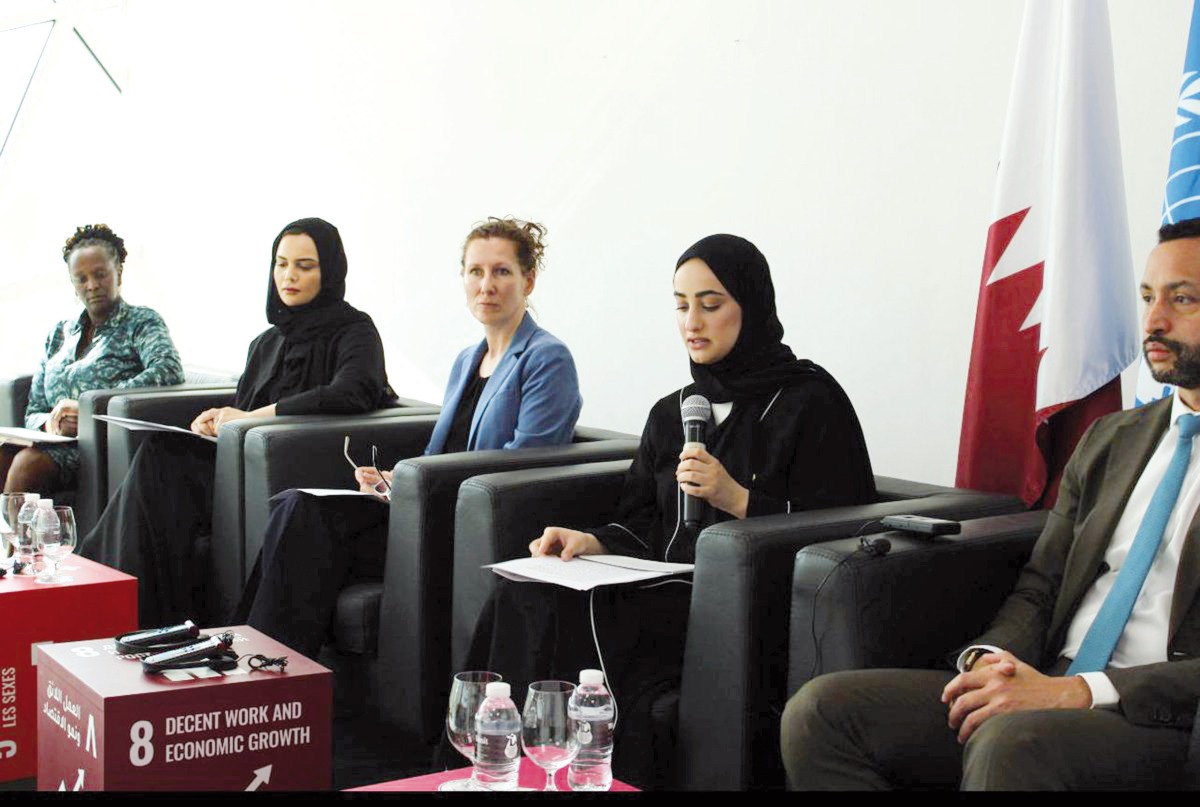The United Nations agencies in the State of Qatar have recently launched a “Code of Conduct for UN Employers of Domestic Workers in Qatar.” This code is a voluntary commitment by UN staff in the country to promote and protect the rights of domestic workers in both their professional and personal lives. The event saw the participation of UN staff, government representatives, domestic workers, and embassies to highlight the importance of upholding the rights of this vulnerable group of workers.
H E Sheikha Najwa bint Abdulrahman Al Thani, the Assistant Undersecretary for Migrant Labours Affairs at the Ministry of Labour, emphasized the efforts of Qatar’s government in improving the situation of domestic workers. She stated that the code aligns with Qatar’s national goal of enhancing the protection of workers’ rights, including those of domestic workers, and reaffirms the commitment to upholding human dignity and human rights. This reflects the country’s dedication to promoting fair treatment and ethical practices towards domestic workers.
The Chief of Mission (OIC) for IOM in Qatar, Ewa Naqvi, stressed the importance of protecting the rights of domestic workers, as they are among the most vulnerable due to the nature of their work being behind closed doors. She emphasized that it is the collective duty of UN staff to model practices that align with national and international legislation to ensure the well-being of these workers. This highlights the significance of creating a safe and supportive environment for domestic workers.
The Head of the International Labour Organization (ILO) Project Office in Qatar, Max Tunon, acknowledged the unique elements of the employment relationship between domestic workers and their employers. He mentioned that the Code of Conduct will provide clarity on what is expected of UN staff who are employers of domestic workers, aiming to streamline the employment process and ensure fair treatment. This tool will help create a better understanding of the responsibilities that come with employing domestic workers within the UN system.
Director of the International Organizations Department at the Ministry of Foreign Affairs, H E Sheikha Hanouf bint Abdulrahman Al Thani, praised the efforts of the ILO and the International Organization for Migration in launching the Code of Conduct for UN Employers of Domestic Workers. She highlighted that this initiative supports Qatar’s efforts to promote the rights of domestic workers and reinforces the responsibility of employers to treat domestic workers fairly and ethically. This demonstrates the government’s commitment to creating a conducive working environment for domestic workers.
President of the Kenya Domestic Workers Organization Qatar, Margaret Nashipia Kabue, emphasized the importance of building strong relationships and creating a friendly working environment between employers and domestic workers. She highlighted that when a domestic worker feels safe and supported, they can be more focused and happier in their work. This underscores the significance of fostering positive employer-employee relationships to ensure the well-being and satisfaction of domestic workers.










